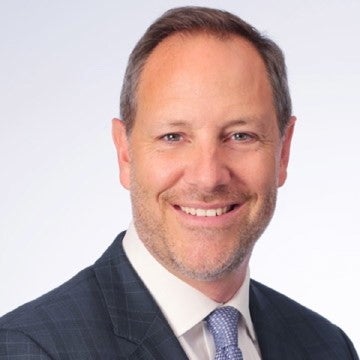
“Building a company from the ground floor to an industry-leading firm is an incredibly rewarding experience.”
Early in his undergraduate days Rob decided to switch majors from computer science to statistics. “I went into stats, because I wanted something more than writing code. I wanted to take mathematical concepts and apply them to real-world problems and applications. Waterloo is recognized as the top school in Canada for statistics, so naturally I wanted to be there. ”
With this unique background, Rob couldn’t have known the pioneering and entrepreneurial trajectory his career would take.
Arriving at Waterloo, he was pleased to learn he would be studying under Professor Mary Thompson, a recognized leader in algorithms for survey sampling techniques. He was equally impressed by the many other stellar faculty in the Department of Statistics and Actuarial Science as well as his highly engaged fellow grad students. With a demanding course load, Rob threw himself wholly into his work.
“I rarely left the MC building or even my office, which I shared with two other grad students, during that time,” he reminisces fondly.
Even before his official graduation, Rob was recruited by AC Nielsen to work in their statistical research group. He was charged with measuring program effectiveness and statistical models involving consumer behavior.
After four years with the global marketing research firm, Rob was itching for his next challenge. He joined the faculty at Western University, teaching undergraduate statistics courses and serving as a statistical consultant to Western faculty and staff for a few years, before turning his attention to the world of finance.
Rob found the career shift a natural extension of his academic training. He quickly became fascinated with the financial markets, which were changing rapidly in the 1990s. Risk modelling was at the leading edge of innovation at the time, and Rob was captivated by it. He recalls his excitement building and deploying risk systems and applications at London Life Investment Management.
“There is lots of opportunity for graduates from quantitative disciplines to develop innovative solutions for finance. When you are trained in deploying mathematical models and statistical techniques, you can fully appreciate the underlying mathematics of financial modelling and build code around it. Graduates with business degrees usually cannot do it.”
When London Life was acquired by Great West Life in 1998, Rob and five of his colleagues decided to take the entrepreneurial leap. They started Highstreet Asset Management.
Based in London, the fledgling company had six employees, no assets under management, but a crystal clear vision of doing two things really well: managing money and looking after their clients. In under a decade, the company flourished and grew to over 40 staff and $5B in assets. “Building a company from the ground floor to an industry-leading firm is an incredibly rewarding experience.”
The success of the firm also made it attractive to larger competitors. It was purchased by AGF Management, based in Toronto, in 2007. Rob stayed on with the firm until 2013. Upon his departure, he readied himself for his next big venture.
In 2014, Rob formed Adaptive Asset Management, located in the heart of Toronto’s Financial District at First Canadian Place. The firm uses quantitative techniques as the cornerstone of its decision making and investment process, making Adaptive one of a few select firms in Canada in the class of quantitative investment manager. Two years into the venture, the company continues to accelerate and add new clients. “Having a systematic, disciplined approach to investing is a key to performing well and managing risk in the current investment environment, and our clients recognize this."
When asked what he would say to students considering graduate studies, Rob is quick to add, “I strongly encourage graduate studies. It sets you apart. An undergraduate program gives you a foundation for critical thinking. Graduate study builds an even stronger mindset. You are more effective and have a higher level of discipline. It takes you to that next level."
“I owe a lot to Waterloo. Being a graduate of a top school in Canada to this day is something to be proud of – it really puts you in select company in the business community.”